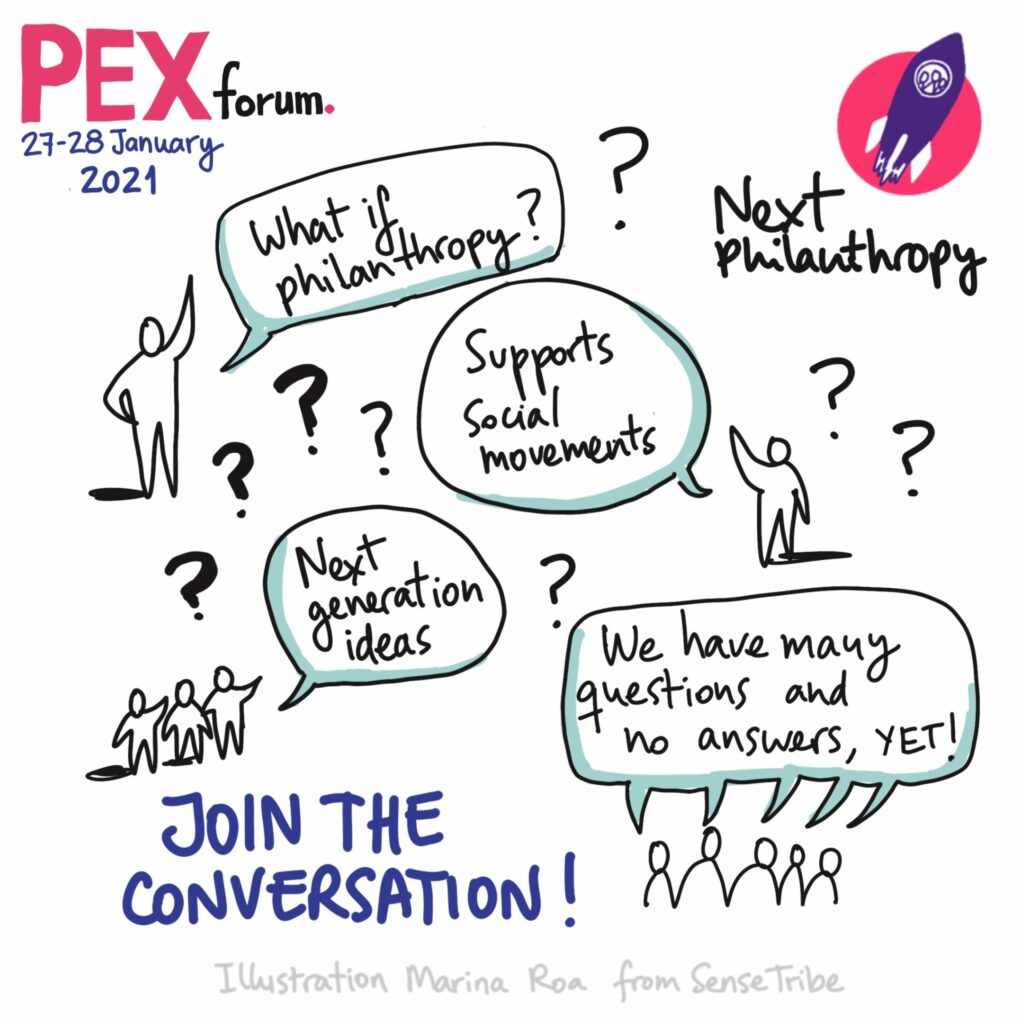PEXforum 2021 – From Reflection to Renewal
Yes, the PEXforum 2021 was a wonderful, personal and successful conference that built on the previous conference in Madrid, included many new voices, and set a path for the future with deep discussions and concrete points of action, including highly promising innovation sandboxes. It showed a clear dedication to building community, to cooperation, co-learning and co-creation, and it was much more engaging, open and bold than anyone could reasonably have hoped for in this sector just a few years ago.
But there is also the fact that I am – at the time of writing this – the seventh male commentator offering essentially the same summary as above in the form of a conference report, and at least the third highlighting the importance of imagining better futures (also for philanthropy in itself) and of building spaces for trial and learning.
So who is it that should be imagining these better futures, for philanthropy and beyond? Who should be in the room – and reporting from the room – when these futures are created and goals and paths being set?

This is not to say that the PEXforum did not make great efforts to welcome and showcase the diversity (in more than one sense) of the field of philanthropy; there certainly were vastly different types of foundations and networks of philanthropy with unique approaches to funding and creating impact, and also with fundamentally different understandings of their values and the role of philanthropy. But diversity of philanthropic approaches is not the same as diversity in philanthropy, and obviously very promising developments in the right direction (just think about how philanthropy conferences looked like just a few years ago) do not mean the sector has arrived at the destination. There is still a long way to go.
Also, in all the discussions at the forum of philanthropy as a “bunch of superheroes” and their impact, there was little talk of the impact craters that superhero landings usually create, and, more importantly, little talk of philanthropy not necessarily being a force for good. It certainly can be, and it really must be, but for that to be the case, now and in the future, it must acknowledge its origins, failings and blind spots. Thankfully, there are people in philanthropy tirelessly working on this, on divestment and transparency, on gender justice and racial equity, on changing philanthropy itself. How the PEXforum 2021 gave more than just a little space to these core issues was very encouraging indeed. But the work does not stop there. This is where it really begins. If PEX wants to be the space it can be, it needs to invite, support and cherish criticism, from within and outwith, of philanthropy and philanthropy networks and of their roles on paths towards justice and change. These are the discussions “we” need to have in order not only to move forward, but to figure out where “forward” actually is.
So all I wish for is for PEX to continue along this path of self-reflection and boldness, in the senses that, among others, Julie Broome, Hanna Hanses, and Jenny Oppenheimer have brought: focusing on systemic issues, on power structures and equity, on accountability, and on not just better, but transformative philanthropy. Go PEX!
Martin Modlinger
Director at Renewable Freedom Foundation and Member of the EDGE Europe Steering Group.
